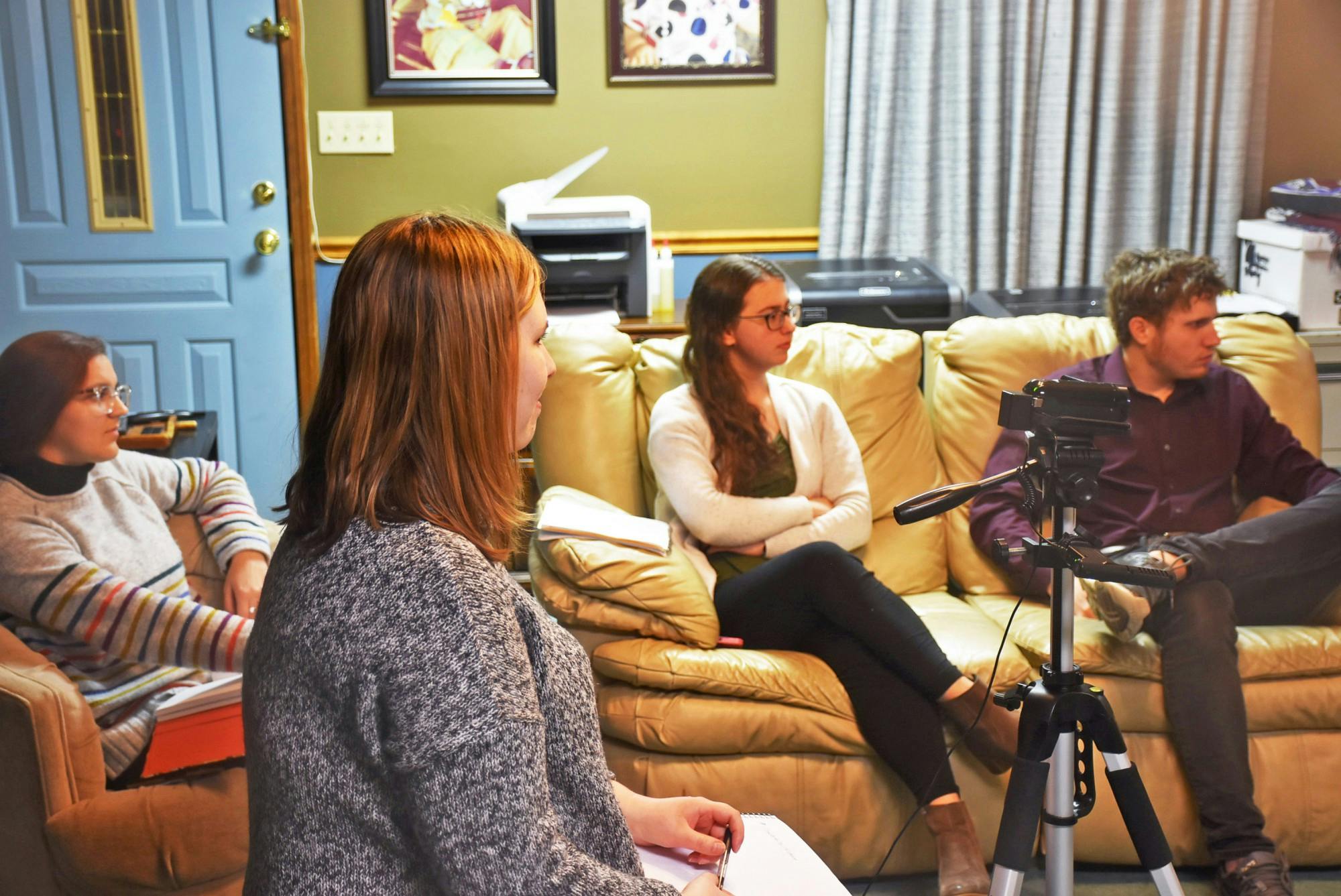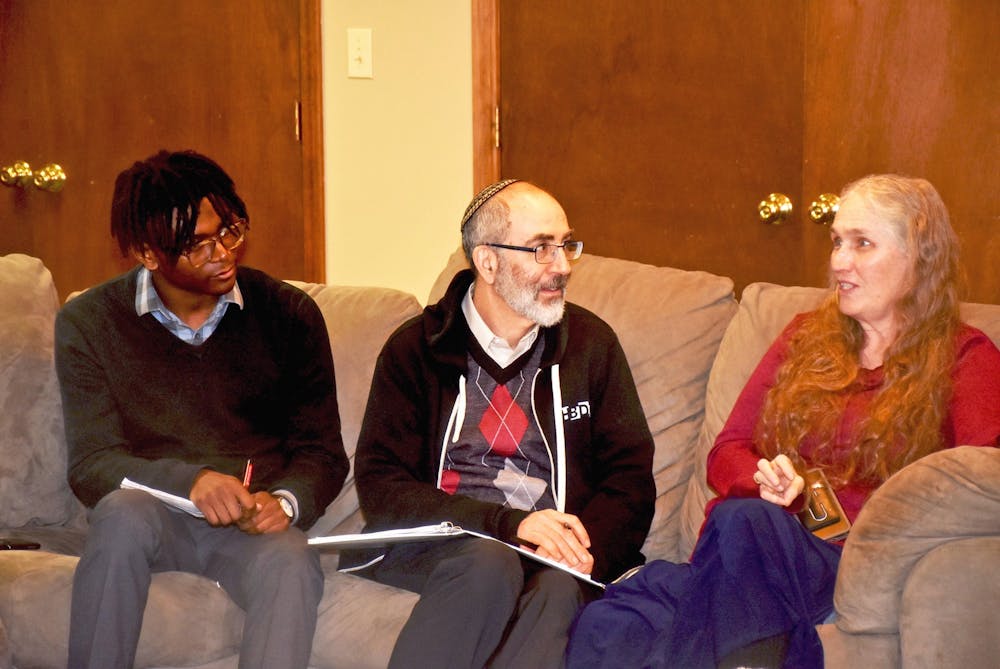
Miami University professor Hillel Gray knows that empathizing with others who hold opposing views can be frustrating. Gray aims to close this gap by teaching his students firsthand how to empathize with some of the most controversial groups in the nation.
Empathy and the Religious “Enemy” is an ongoing fieldwork project led by Gray. Students participating in this project have had the opportunity to interview members of the Westboro Baptist Church (WBC) and the Neturei Karta, an Orthodox, anti-zionist Jewish group since 2017.
Gray said the project does not focus on the theology of these groups but aims to help those who hold opposing views to the group relate to one another without condoning their actions or passing moral judgments. The student researchers ask the members about their personal lives and what life is like for them outside of the church.
Over J-term, Gray and seven student researchers made their way to Topeka, Kansas, to visit Westboro. The group attended church services and worship nights and were invited to the members’ homes. Throughout the week they conducted interviews, asking the members about their day-to-day lives to better understand them as people.
Gray first became involved with Westboro after submitting a request through a dialogue box on the church’s website to meet with them. He became curious after seeing some of their street preaching in Atlanta during his time teaching at Emory University.
“So many people act as if they’re insane or wrapped up in bigotry or as if they’re cruel and have no way to relate to human beings,” Gray said. “So I was curious to see what it would be like to actually talk to them and connect to them, and would we be able to have any kind of communication.”
Going into what Gray calls the “pilot interview” in the spring of 2010, he was very nervous. As a Jewish man, he was unsure how the group would react to him, knowing their overt views against Judaism.
But, Gray was surprised.
He described the members during their meeting as polite and very soft-spoken. There were no vicious attacks on his identity or arguments about theology.
“I left feeling very curious and fascinated and encouraged about speaking with them again because it seemed doable,” Gray said. “And it seemed like there was so much to learn because people were not approaching them in this kind of way. So there was no way to learn about them.”
Enjoy what you're reading?
Signup for our newsletter
When Gray came to Miami later that year, he kept in contact with members of Westboro. He and a few members of his team made their way to Topeka to visit the church and conduct interviews.
In 2011, in an attempt to show his students how he conducts his research firsthand, he proposed that the Comparative Religion Department invite a few members from Westboro to Miami. The proposal prompted outcry from students, according to a report from The Miami Student.
In response to the Comparative Religion Department dropping the proposal, Westboro made an appearance at Miami to picket at the corner of Maple Street and Spring Street. Across the street, they were met with a group of nearly 600 students who participated in a “Unite Miami” rally which protested against Westboro.
After Westboro came to picket at Miami, Gray continued contact with the church. In class he taught lectures on the methodology of approaching people and interacting with others in an empathetic way, using his research with Westboro as an example. But it wasn’t until 2017, when a student approached Gray about being involved in his research, that he finally allowed students to attend the trips to Topeka with him.
Senior psychology and comparative religion major Sofia Vlahakos has attended the trip three times. Her hope is to become a lawyer with a concentration in family law and believes practicing empathy through this fieldwork is preparing her for her future career.
“If I can sit down and talk with the Westboro Baptist Church, who can’t I talk to?” Vlahakos asked. “This is a tool in your toolbox. This ability to empathically understand someone else. I just don't see the harm in doing that with everyone.”
Gray says some have expressed concerns about the project’s connection with Westboro and question his research.
“There are all sorts of objections to my work,” Gray said. “I think a lot of the concern that we get comes initially when people assume that we’re somehow condoning what they do.”
Miami alumna Margaret Hamm, who has been on the trip three times, says those who disagree may not understand the purpose of the project.
“One of the main parts of our project is that it's okay not to agree,” Hamm said. “It's okay to completely disagree with everything that the Westboro Baptist Church — or just, in general, a person that you're engaging in a conversation with — has to say. We're not pushing for everybody to be on the same page with each other. We are simply trying to create a space in which people who do have differing viewpoints can come together and discuss them in a civil, calm, composed, understanding way.”
Although Westboro may be an extreme, Gray hopes the interviews that he and his students conduct are able to help them in their own personal lives.
“I'm not trying to change them; I'm trying to change us,” he said. “I'm trying to change what I can change about myself, what I can change hopefully about my students — which is our own prejudices, our own inability to relate to somebody else as a human being. Our own flaws or gaps or points where we can no longer approach and listen to somebody with empathy.”




